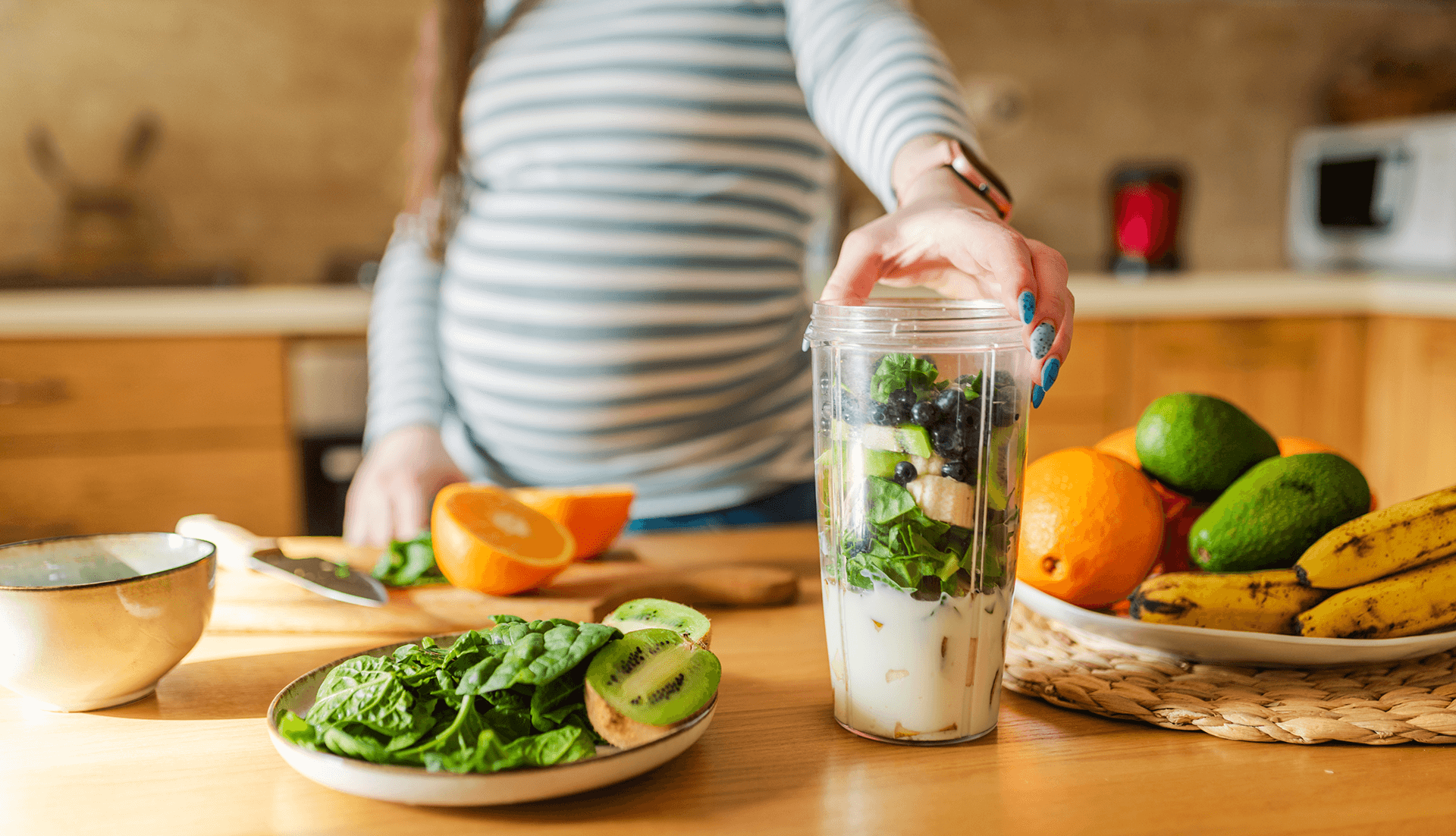
Plant-Based Pregnancy: Tips for Meatless Moms-to-Be
- Home
- Live Well Blog
- Plant-Based Pregnancy: Tips for Meatless Moms-to-Be

Eating well during pregnancy is important for you and your baby. If you’re a vegetarian or vegan, you can still have a healthy pregnancy – you may just need to take a little extra care to get the nutrients your body needs.
Plant-based foods are full of good things like fiber, but some nutrients can be harder to get without meat or dairy.
These include:
- Protein
- Iron
- Vitamin B12
- Vitamin D
- Calcium
- Folate (also called folic acid)
- Zinc
- Omega-3s

A daily prenatal vitamin is important for all pregnant women.
If you eat a vegetarian or vegan diet, you may also need extra supplements. Always talk to your doctor or WIC nutritionist before taking any vitamins or supplements. Taking too much can be harmful.

Women typically need about 46 grams of protein each day, but pregnant women need more, especially in the second and third trimesters. During pregnancy, you need about 71 to 75 grams of protein each day.

Try these protein-rich foods:
- Beans, lentils, and peas
- Tofu, tempeh, and soy milk
- Nuts and seeds (like almonds, chia, flax, or peanuts)
- Nut butters
- Eggs
- Milk, cheese, and yogurt
- Whole grains like oatmeal and brown rice

You need 27 mg of iron each day. Low iron can make you feel tired.

Good plant sources of iron:
- Beans and lentils
- Dark leafy greens (like spinach and kale)
- Dried fruit and nuts
- Iron-fortified cereals

You need about 2.6 micrograms each day.
Check the food label to make sure it’s fortified with B12.

B12 is only found in animal foods.
You can also get it from:
- Fortified soy milk or other plant milks
- Fortified cereal
- Fortified nutritional yeast

You need 600 IU of vitamin D each day during pregnancy.
Your doctor may suggest a supplement if you aren’t able to get enough vitamin D from the sun or from food.

You can get vitamin D from:
- Sunlight
- Fortified cow’s milk or soy milk
- Eggs (the yolk)
- Fortified cereal

You need 1,000 mg of calcium each day.

Try:
- Milk, cheese, and yogurt
- Calcium-fortified soy or rice milk
- Tofu
- Broccoli, kale, spinach
- Almonds and sesame seeds
- Fortified orange juice

You need 400 micrograms each day.
Eat foods with vitamin C (like oranges or strawberries) to help your body absorb folate better.

You can get folate from:
- Beans and lentils
- Dark leafy greens
- Prunes
- Tofu
- Fortified bread, pasta, rice, and cereal

You need at least 11 mg each day.

Foods with zinc:
- Fortified cereals
- Soy foods
- Whole grains and oatmeal
- Nuts and seeds
- Milk, cheese, and yogurt

You need 200–300 mg of omega-3s each day.

Try:
- Fish (limit white/albacore tuna to 6 oz per week; avoid shark, swordfish, king mackerel, and tilefish)
- Chia seeds
- Flaxseeds

Final Tip
You don’t have to eat meat to have a healthy pregnancy.
With good planning, a plant-based diet can give you and your baby everything you need.
Just be sure to:
- Take a prenatal vitamin every day
- Eat a mix of healthy foods
- Talk to your doctor or WIC nutritionist about supplements you may need
And don’t forget to remind yourself that you’re doing a great job taking care of yourself and your baby!
REFERENCES:
U.S. Department of Veterans Affairs. (2023). Vegetarian diets in pregnancy.
https://www.va.gov/files/2023-09/Pregnancy%20and%20Vegetarian%20Diet.pdf
Sebastiani, G., Herranz Barbero, A., Borrás-Novell, C., Alsina Casanova, M., Aldecoa-Bilbao, V., Andreu-Fernández, V., Pascual Tutusaus, M., Ferrero Martínez, S., Gómez Roig, M. D., & García-Algar, O. (2019). The effects of vegetarian and vegan diet during pregnancy on the health of mothers and offspring. Nutrients, 11(3), 557.
https://doi.org/10.3390/nu11030557
